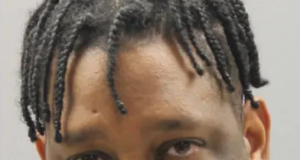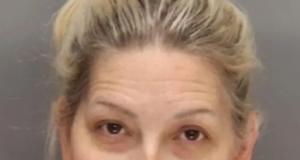Nine months after Russian activist Svetlana Davydova called the Ukrainian embassy in Moscow to warn that Russian soldiers were making their way to Ukraine, an investigator with an order for her arrest showed up at her door.
Her husband, Anatoly Gorlov, said the investigator from the Federal Security Service (FSB), the successor to the Soviet KGB, detained Davydova, a mother of seven living in the western Russian city of Vyazma, on suspicion of treason.
"They... didn't ask for permission, they just threw themselves on me and rushed into the apartment yelling 'Quiet!'," Gorlov told Reuters in his small apartment.
"A man in civilian clothes identified himself as an investigator from the FSB. They asked Sveta 'Are you Davydova? We are taking you right now!'," he said.
Ukraine and Western governments accuse Moscow of sending weapons and troops to support a pro-Russian insurgency in eastern Ukraine. Russia denies this. More than 5,000 people have been killed since last April in the conflict, which has worsened sharply this month.
Russian activists, and relatives of soldiers sent to the front lines in Ukraine, are often hesitant to speak out. Soldiers' rights campaigner Ella Polyakova was declared a 'foreign agent' after she gave an interview to Reuters last year about the deaths of Russian soldiers in eastern Ukraine.
Gorlov said papers for his wife's arrest on Jan. 21 showed she called Ukrainian diplomats after overhearing a soldier's conversation about troops from a nearby military base being sent to Moscow and from there to Ukraine, where they were being told to wear civilian clothing.
If convicted, she could face between 12 and 20 years in prison.
The Ukrainian embassy in Moscow was unavailable for comment. The FSB and the lawyer assigned to Davydova declined to comment on the case.
Speaking in his green-wallpapered apartment lined with children's drawings, Gorlov said his wife, who had been active in the Communist Party and was an environmental campaigner, was no spy.
"It's not a secret," Gorlov said of the presence of Russian troops in east Ukraine. He has not seen his wife since she was detained.
"I don't know why they took her away," he said.
"She possibly might have considered that by calling the Ukrainian embassy, fewer people would die... I know she was not led by any harmful intentions."




